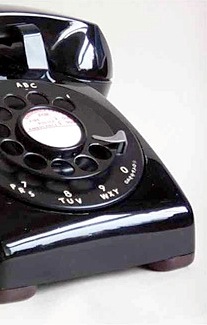How does anyone get anything done in this town?
The old guy Mike called to give us an estimate for replacing two windows refused to take driving directions to our house. Instead, I had to drop everything and go out to meet him.
He wasn’t at the corner where he was supposed to be. Instead, he’d driven his unmarked truck past me and was waiting two blocks from our home. He used his cell phone to call me. I tracked him down and he followed me to my house.

The window on the right is the one that needs replacing.
The windows are upstairs. He followed me up the stairs. I pointed out the 4 foot by 8 foot double-pane glass panel that needed replacement. The seal between the two panes had failed and moisture had slipped in. Each day, the window would fog up in a way that couldn’t be wiped clean. Since the window is one of two that offer the best view in the house, we wanted it fixed quickly.
He walked up to the window and looked at the garage roof outside. “How do I get out there?” he asked.
“On a ladder,” I replied.
“We can’t do that. The glass is big and heavy.”
“You did it twelve years ago when we first bought the house,” I told him. I pointed at the identical panel of glass beside it. “You replaced that one right after we moved in.”
“How did we get up there?” he asked.
“On a ladder.”

The bathroom window is broken.
I took him into the upstairs bathroom to see the other window that needed replacing. This was a small two-part window of white-smoked glass. One panel slid back and forth to open or close the window. The other panel remained stationery. The stationery panel had always had a bad seal that let moisture in, but we never bothered to replace it since you couldn’t see through it anyway. But during a recent storm, that panel’s outside pane had broken. We wanted it replaced.
He pulled off the panel that slid back and forth and set it down beside the toilet. He reached around, pushing the screen out a bit and mumbling about how he hoped nothing fell.
“How do you get up to this window?” he asked.
“On a ladder,” I replied yet again.
“What size ladder?”
“My husband uses an extension ladder. We have one you can use.”
He put the other panel back in place. “I don’t know why anyone would build a house like this,” he muttered as he led the way out of the bathroom.
My patience was stretching thin. “People don’t usually design houses just to make it convenient to replace windows,” I told him.
He went downstairs, outside, and around the side of the house. I followed. He looked up at the bathroom window, which had to be at least 20 feet off the ground. Then he looked at the comparatively short climb to the garage roof.
“Once you get up there,” I told him, you can walk on the garage roof pretty easily.
He looked at the situation for another moment, then suddenly said, “I can’t help you, lady.”
I don’t know if he was expecting me to argue or beg with him, but if he was, he was disappointed.
“Okay, thanks for your time,” I said quickly. “You can find your way out? Be careful backing up.”
And then I went into the house, leaving him find his way back to wherever it is he’d come from.
Of course, since the old guy is the only glass replacement option in Wickenburg — or at least the only one my husband could find — we’ll have to get someone up from Phoenix to do the job. But that’s typical here. No matter how much you try to spend money locally, you just can’t get what you need.

 Yeah, I know. In the old days, calling a phone number outside your area code would likely cost you a few bucks for a few minutes. “Long distance” phone calls were pricey, often 25¢ or more per minute. Cost conscious folks had no interest in following up on a vendor or service by calling in. Thus, toll-free (originally “800” numbers in the U.S.) were born. By the 1990s, they’d run out of area code 800 phone numbers and added 866 and 877.
Yeah, I know. In the old days, calling a phone number outside your area code would likely cost you a few bucks for a few minutes. “Long distance” phone calls were pricey, often 25¢ or more per minute. Cost conscious folks had no interest in following up on a vendor or service by calling in. Thus, toll-free (originally “800” numbers in the U.S.) were born. By the 1990s, they’d run out of area code 800 phone numbers and added 866 and 877.
